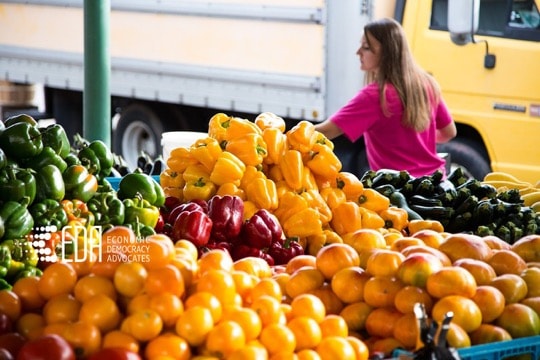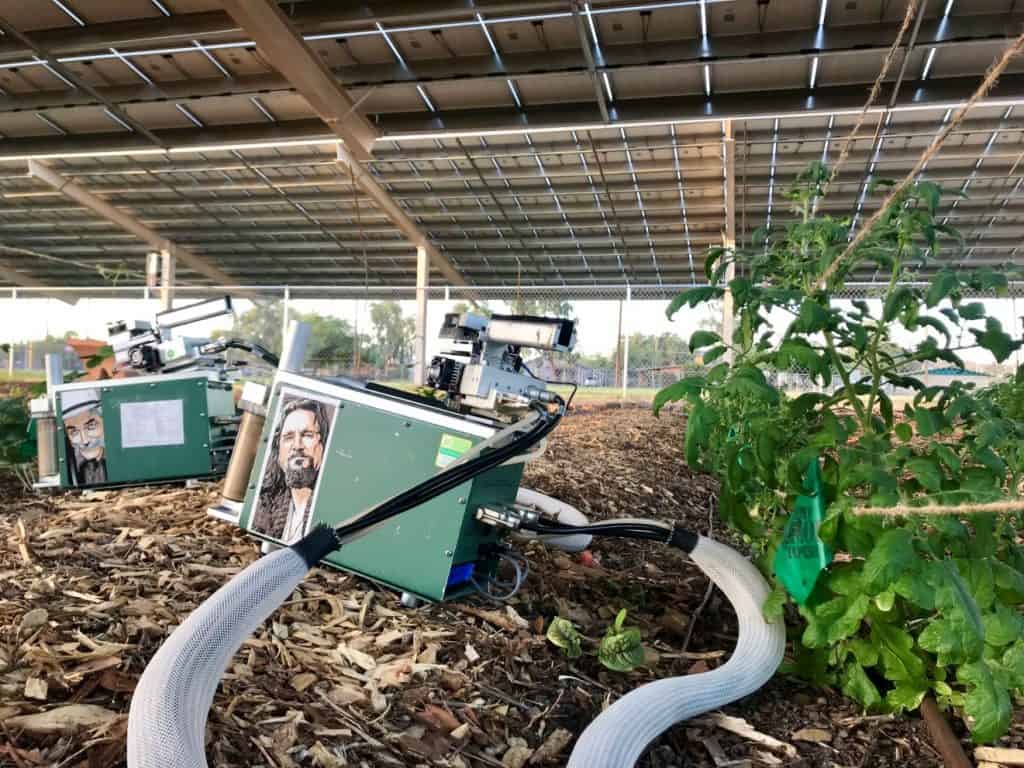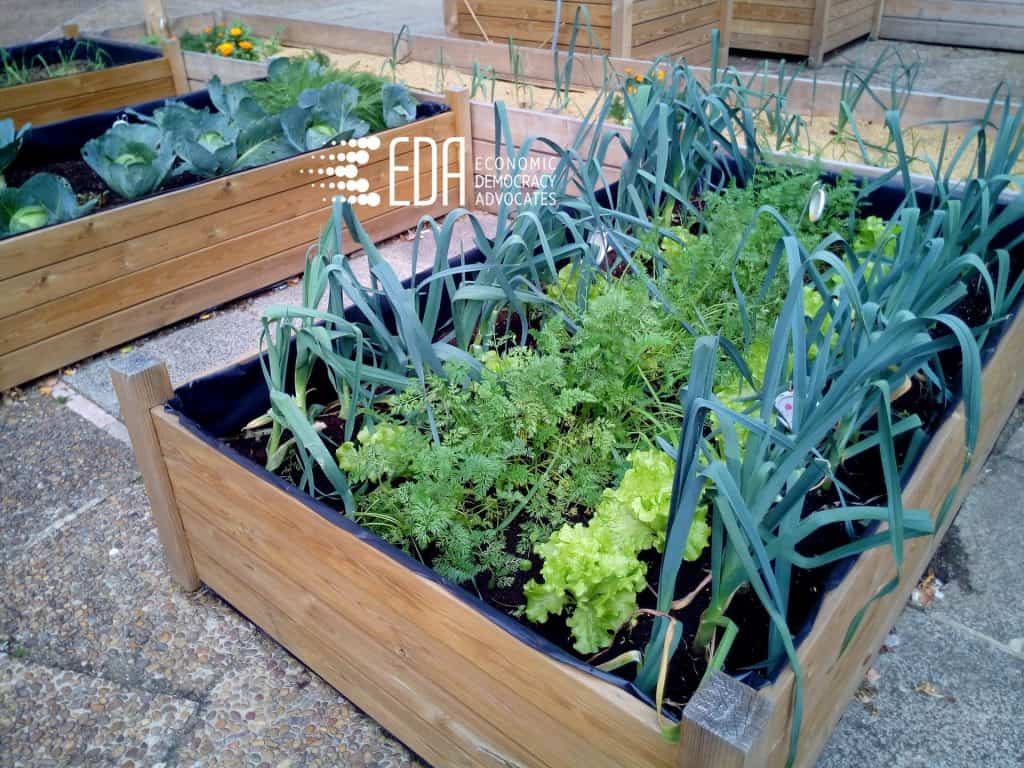In May 2017, EDA held our first “Our Common Good Conference” where we featured a presentation about carrying capacity in geographical areas around the country. The term “carrying capacity” refers to the ability or limitations of a geographical area to sustain life through the local availability of water and food production.
One of the case studies shared in this presentation analyzed the carrying capacity in Franklin County, Ohio, home to the city of Columbus.
Three of our members revealed their findings pertaining to the limitations of the county’s ability to sustain its growing population. This article below explores a more community-focused approach to urban agriculture that is beginning to thrive in Columbus, one that is less commercial.
As you read this article, we encourage you to click through the links to learn what some of the local Columbus communities are working on. And, we hope this will inspire you to bring urban agriculture projects to a city near your home.

Communities of Columbus, Ohio are using urban agriculture to promote sustainable development and increase access to locally grown food. Gardens are popping up in otherwise under-utilized areas, and the people of Columbus are learning how to grow food in their own backyards. Food Tank presents a list of ten urban agriculture projects that deserve attention.
4th Street Farms is a community-run urban garden that provides education, employment opportunities, and increased access to healthy food in the Weinland Park neighborhood. Fourth Street Farms are part of a larger network of community organizations and businesses, including Ohio State University, committed to building a sustainable local food system in Weinland Park. According to Evelyn Van Til, Community Manager at 4th Street Farms, “the benefits of gardening are that you get to know your neighbors, you have a safer space, you have better food and ultimately that’s what neighborhoods are really about.”
City Folks Farm Shop provides resources to make urban gardening, homesteading, and raising livestock accessible in central Ohio. Urban gardeners and homesteaders can rent tools and take classes on homesteading topics at the shop. Their apprenticeship program, Ground Swell, pairs experienced homesteaders with selected mentees to learn about sustainable living. Ground Swell’s mission is to “highlight and expand the homesteading community in central Ohio, beginning a ripple effect that will create more urban farms and homesteads who are connected and learning from one another.”
City of Columbus Land Bank Community Garden Program sells city residents unused and abandoned land to build community gardens. Applicants must provide specific plans for the garden and how it will improve the surrounding area. The Land Bank recently partnered with Rebuilding Together Central Ohio to offer tool sharing services and rain catchment systems for gardeners.
Franklington Gardens provides the Franklington neighborhood with organic food, education, and employment opportunities through a network of local gardens and food production sites. The neighborhood has limited access to fresh healthy foods, but according to the nonprofit organization, “the food access problem is temporary, and Franklinton Gardens has partnered with many organizations across the city to improve our food reality.” Residents are encouraged to take part in the Avondale Community Garden.
Growing to Green is the largest organized effort in Columbus to provide free, local resources for city beautification and community gardening. The Franklin Park Conservatory program has helped renovate or establish more than 250 community gardens since the program began in March 2000. Growing to Green’s 12 gardens serve as education centers and models for the community, “by providing increased access to fresh, healthy food, and developing programs for youth education, job training, and cultural enrichment.”
Local Matters, “is working to inspire action because food impacts the quality of our health, our land and our communities.” Since 2002, the nonprofit organization has been educating families and children about local food, nutrition, and how growing community gardens can create sustainable change in the food systems of central Ohio.
Over the Fence Urban Farm teaches community members how to utilize space to grow food that promotes self-reliance and sustainability. The farm started as one small raised bed in 2005, and is now a 2,000-square foot farm. With help from volunteers, the husband and wife team distribute their seasonal produce to subscribers of their Community Supported Agriculture (CSA) program.
Swainway Urban Farm sells specialty produce to local restaurants, farmers’ markets, and retail outlets. The farm promotes organic gardening as a means for building healthy communities and individuals. Joseph Swain, Founder of Swainway, began growing food in his backyard in 2007 when he realized he wanted to “encourage others to grow their own food gardens.” The farm offers workshops and provides education on gardening and homesteading.
Urban Farms of Central Ohio (UFCO) transforms vacant, or under-utilized, land into community gardens to end hunger in underserved communities and promote sustainability. UFCO is a nonprofit organization formed in 2012 by the Mid-Ohio Foodbank and a team of passionate community members. The UFCO’s pilot garden offers employment opportunities, job training, affordable local produce, and education to community members and volunteers.
Weinland Park Food District is building a multi-purpose facility that will increase access to healthy food, provide work-force training, and job opportunities to the historically underserved neighborhood of Weinland Park. The facility is slated to have a processing and packing service for locally grown food, an event space, and a restaurant. The Food District broke ground in June of 2014 with their first greenhouse to supply specialty produce to local restaurants. They are focused on continued local expansion to retain food businesses and opportunities in Weinland Park.
Article originally published in Food Tank


